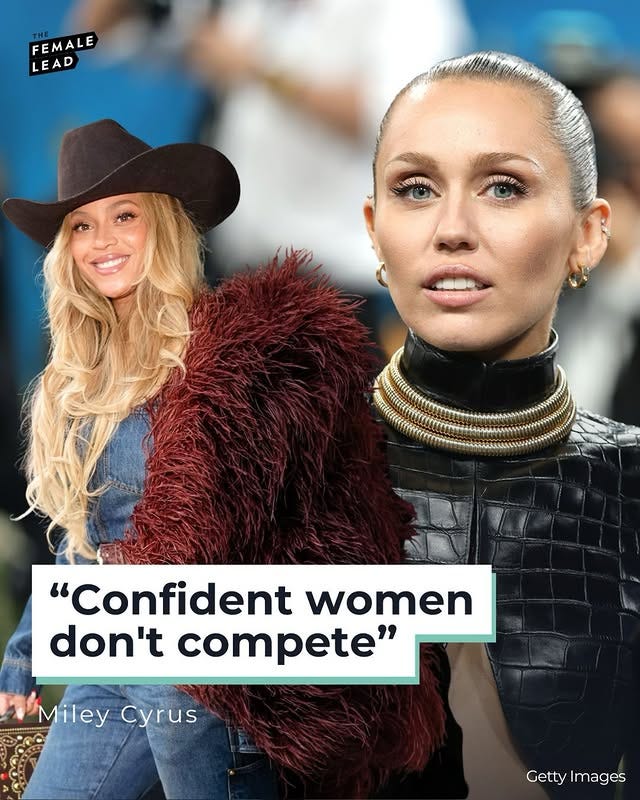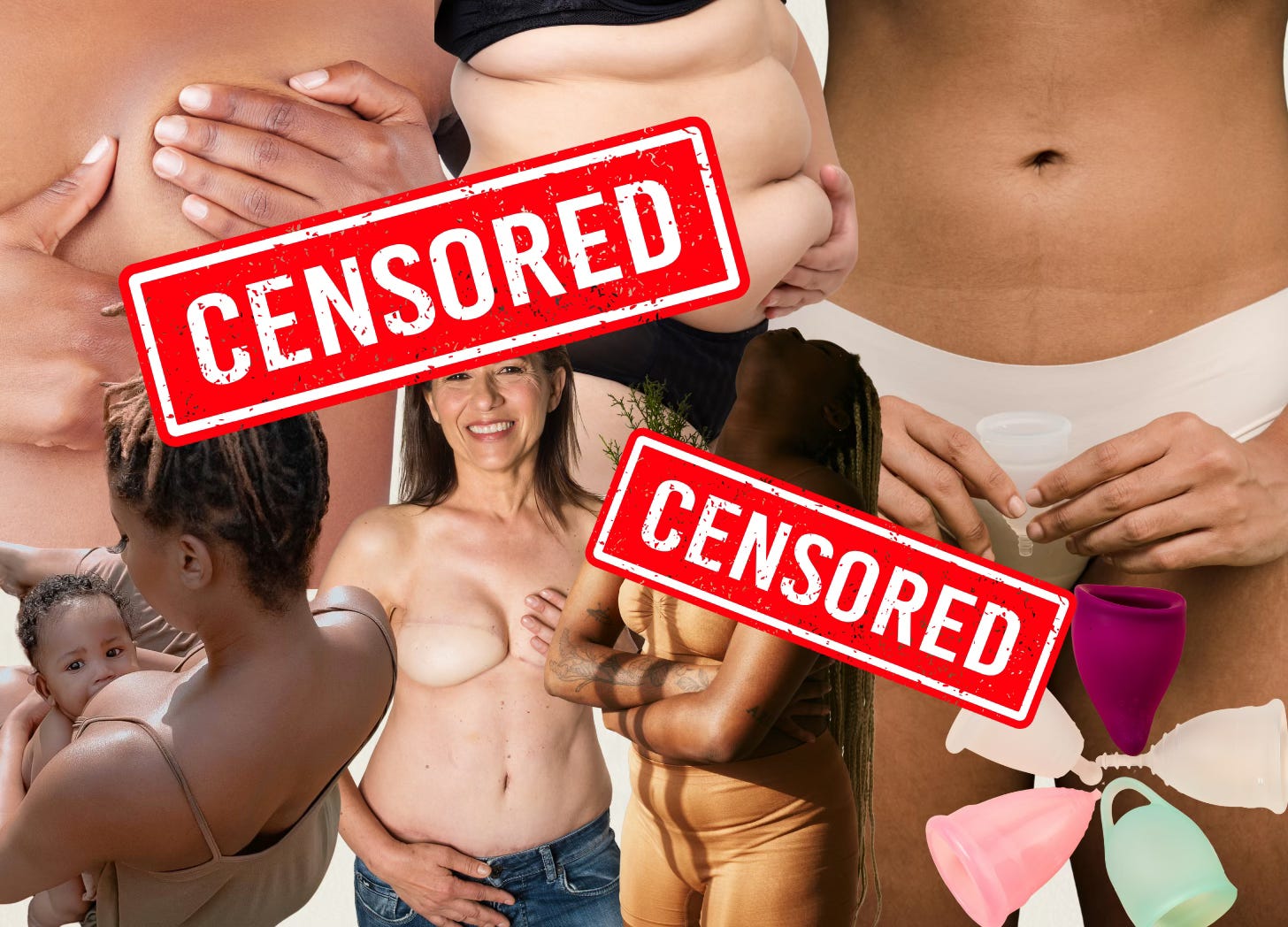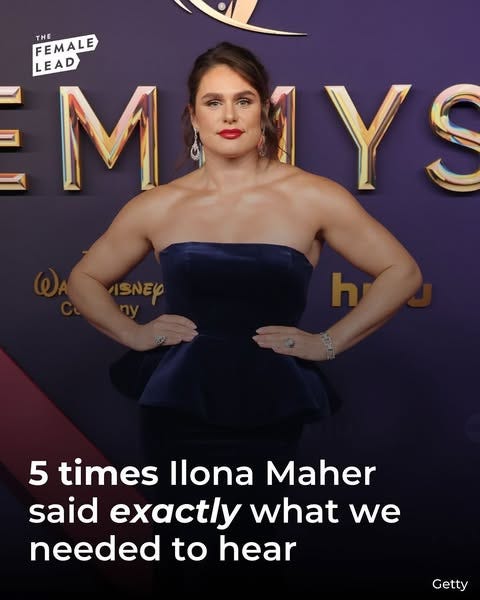Feel you're being silenced when talking about your health? You probably are.
Plus: 💋 Miley Cyrus 🤝 negotiation 🏉 Ilona Maher
Have you ever had a health post flagged, removed, or hidden online?
Do you find yourself typing “v*gina” or swapping in an emoji just to dodge the algorithm?
You’re not imagining it.
Women’s health content is being silenced on social media, while men’s sexual health ads sail through unchecked. It’s a double standard that affects what women see, what we share, and even how we talk about our own bodies. Our lead article this week explores the hidden cost of censorship – and what it means for the gender health gap.
But that’s not all we’re covering. In this edition of Take The Lead, we’re also celebrating Miley Cyrus proving she’s the ultimate girls’ girl when she took the stage with Beyoncé; unpacking how you can make negotiation a part of everyday life; and spotlighting five times rugby superstar Ilona Maher said exactly what we needed to hear.
Enjoy, share if you like it, and subscribe if you haven’t so that you never miss an instalment.
The Female Lead Team
We’re talking about…
💊 Beta-blockers might be bad news for women. A European Heart Journal study found that women with only mild heart damage after a heart attack were more likely to face complications or even another attack if treated with beta-blockers, especially at high doses. Men did not show the same effect. The REBOOT trial backed it up, showing no benefit for patients with healthier hearts overall.
🧠 Birth control affects the brain, not just the body. (Okay, we’ve known this for a while, but it’s nice to see science is backing it!) A Rice University study found women on hormonal contraceptives reacted more strongly to emotional events but remembered fewer details of negative ones, which could help them move on. Positive memories stuck more clearly too. Proof that the pill shapes emotions and memory, not just periods.
😣 Teen period pain is linked to chronic pain later. Oxford scientists found that girls with moderate to severe cramps at 15 had a 65 to 76% higher risk of chronic pain by 26. Think headaches, joint pain, the lot. The study calls for earlier support, better menstrual health education and tackling stigma - especially in underserved communities.
Inspire me…
Miley Cyrus speaking about working with Beyoncé and performing on stage together during the Cowboy Carter tour is exactly the kind of women-supporting-women vibes we love to see.
Feel you're being silenced when talking about your health? You probably are.
By Clio Wood, co-founder of CensHERship
85% of UK women have felt dismissed by a healthcare professional in their lives, according to the government’s own data.
So when that happens, where do you turn? Likely to other sources of advice, like search engines and social media. You’d expect information to be freely available there, right?
Wrong.
I’m a co-founder of CensHERship, and a women's health advocate. My social media content is supportive and signposts to medically-accurate resources. I’m not out to sell you snake-oil solutions.
But on social media, I have experienced censorship and restriction of benign and supportive health posts for women, sometimes with no explanation.
Read more in the full article here
Toolbox: Make negotiation an everyday activity
From Amy Combrinck, negotiation expert, coach and founder of Fireflying
🤔 Why: Only 43% of women have ever asked for a pay rise. One of the biggest reasons for us holding back is the fear of negative consequences. But the truth is, the more you practice asking, the less loaded it feels and the more likely you are to get what you need.
🔧 How: Start treating asking for more - more time, more pay or more help - as totally normal. Not brave. Not awkward. Just everyday negotiation.
Reframe it in your mind. Asking isn’t demanding, it’s how things change.
Start small: ask for clearer briefs, better deadlines or shared mental load at home.
Try language that feels like your own:
– “Would you be open to…”
– “Could we find another way?”
– “What would help this work for both of us?”Build the muscle. Each ask builds your confidence and shows others what’s possible too.
Small asks lead to big shifts. And that’s how negotiation starts to feel different, one ask at a time.
Final thought…
Become a paid supporter
The Female Lead is a charity on a mission to empower women.
In the last 8 years, we have given access to books and teaching materials to 2.5 million students in 25,000 schools around the world. We carry out research that reframes our understanding of women’s experience, such as our Fulfilment Finder survey which reveals what matters most to women at different life stages. It has now been completed by 150,000 women globally.
We can’t run the charity without your support.
For just £3.50 a month or £25 a year, you can make a huge difference.
Your donations allow us to continue to provide teaching resources and education to girls and women around the world, conduct groundbreaking research, and share science and stories online.
By pledging to make a donation, you get a host of other benefits like:
Access to our full archive of content on everything from advice from CEOs, to early menopause, to the brain impact of the mental load
Get the first look at our research reports busting myths around women
A virtual supporter badge to share and display online






